- Home
- Patricia Briggs
Raven's Shadow rd-1 Page 21
Raven's Shadow rd-1 Read online
Page 21
Tier sighed, “I’m glad there’s no one here who knows me. I’d never live this down.”
They covered his magnificent gaudiness with a brown robe and pulled its hood down to hide his face.
“There now,” said Myrceria. “You are ready.” She hesitated, and the practiced manner of a court whore faded a little. “You’ve made our job easier,” she said. “Let me help you a little. The wizards will be waiting when we take you out the door. Go with them quietly; they won’t hurt you. They’ll escort you through the Eyrie—the largest room that belongs to the Path. It’s an auditorium tonight, but usually it is just a room for people to gather in. The wizards will take you to the stage at the end and introduce you to the Passerines and whatever Raptors decided to come.”
He took her hand in his and bent to kiss it. “Thank you for your kindness, Myrceria. Ladies.”
There were four men in black robes waiting for him, just as Myrceria had promised. Like him, their hoods were pulled over their faces.
Tier hesitated in the doorway, unprepared for the fearful reluctance he felt at the sight of them and the sudden conviction that he’d seen the knobby hands of the man nearest him holding a small knife wet with blood.
He repressed his fear and the anger it called. With a small smile he set himself in the center of the procession.
“Shall we go, gentlemen?” he said pleasantly.
The Eyrie was made up of broad shelves of level flooring with short drops between sections; the level shelves narrowed as they neared the stage at the far side of the room.
The uppermost section, where Tier and his escort entered, was mostly occupied by a bar laden with food. Behind the bar was an open doorway where servants appeared with trays of food or armloads of ale mugs.
There were a few tables against the wall with white-robed men who watched Tier mostly indifferently. But most of the people in the room were young men in blue robes who quieted as the procession passed them by. By the time they reached the stage, the room was eerily silent.
The wizards walked Tier onto the stage and stopped in the middle, turning as one to face the audience. As soon as they stood there, the lights in the Eyrie dimmed except for the stones that lined the edge of the stage.
Squinting against the odd light, Tier saw that everyone in the room was slowly moving down to the chairs set in front of the stage. When they had all gathered, a hollow boom made the Eyrie shudder, and in a cloud of smoke and magic, a fifth black-robed man appeared: Telleridge.
He stood bareheaded before the crowd so that every man there could see him.
“My friends,” he said. “For some of you, this will be the first introduction to the secrets of our path. Traveler Magic from the hands of the Five Gods.” He lifted his right hand up and displayed an implement that looked like a morningstar without the spiked ball. Instead, dangling on the end of the chain was a large, silver owl.
“Owl who is Bard,” he said.
The man on Tier’s left front held up a similar item with a raven rather than an owl. “Raven who is Mage,” he said.
Five gods? thought Tier. If they were using the Orders they were missing one. The other wizards called out Lark, Cormorant, and Falcon; but there was no Eagle. He would have fretted about it more, but he remembered where he’d heard of the Five Gods before: the new priest in Redern. Seraph, he thought in panic, my children—who would they take next?
A flood of magic interrupted Tier’s worrying.
“For centuries,” Telleridge said, his voice carried to the far corners of the room by magic, “the Travelers hid their power from us—just as the Emperor and his Septs hide their lands and titles away from us, thinking that they have rendered us powerless, helpless. But we are the Followers of the Secret Path and Hidden Gods: we worship the Birds—Raven for magic, Lark for life and death, Cormorant to rule the seas, Falcon to find our prey, and Owl to lead men into our darkness. Tonight, my friends we will all partake of darkness.”
He took a step to the side so the audience had an unobstructed view of Tier; at the same time one of the wizards who stood behind Tier pulled off his robe. He said something as well, too soft for Tier to catch, but whatever it was, it froze Tier motionless.
“Raven is flown,” said the man who held the raven symbol. “Gone from our keeping.”
At his words Telleridge flung his free hand up and the whole room erupted into howls, like a pack of hunting dogs. Tier would have been impressed if the effect hadn’t had a practiced polish. This was a response trained into the Passerines, a war cry without passion.
The wizards Tier could see put the chains over their shoulder, balancing their symbols with the handle hanging down their back, leaving the birds in front where they could be seen. With their hands free, they began to clap in a slow, restless rhythm. Fourteen beats into it there was an echo from the audience. By the twentieth beat the noise was loud enough to account for everyone in the room except for Tier. On the thirty-fifth beat, everyone stopped, leaving only Tier’s heart beating still.
The wizard with the raven said, again, “Raven is flown.”
An older man in white stood up and said, “So farewell the Raven. What guest have you brought?”
Telleridge said, “We bring the Owl, cunning and beautiful, that he will give us the gift of music.”
The Passerines replied then, as if one man spoke with a hundred mouths. “By blood shall we bind him, by fire shall we seal our bargain. By blood shall we free him after a year and a day.”
“As you will,” said Telleridge. He touched the owl and a small blade shot out at the end of the owl’s feet. With measured steps he walked to Tier’s side. He took Tier’s helpless wrist and made a shallow cut. Then he held the knife beneath the wound until the silver blade was completely covered in blood.
He went to the wizard with the raven and touched a finger to the blade and then touched the wizard’s raven.
“By blood,” said the Raven wizard.
Telleridge repeated the procedure with the others. When he was finished he resumed his former position to the right of the Raven wizard.
The ceremony was nonsense as far as magic went, Tier knew. The only magic that had been done was the spell that kept him still—but Tier could read audiences. Excitement filled the room like some heady wine.
“Raptors, Passerines, Masters all, I give you the Owl!” Telleridge called, and the audience roared to their feet.
When the cheering and hooting died down, Telleridge held up his hand, snapped his fingers, and a lute appeared in his hand.
“Play for us, Bard,” said Telleridge. “And we will grant you guesting rights.”
As easily as that Tier could move.
Quickly, he considered his options and chose the one that appealed to him the most. He took the lute the Owl Master held out to him—a beautiful instrument to look at—but when he played a few notes he shook his head.
“Myrceria, lass,” he said, letting his voice find her wherever she waited in the darkness that disguised the further rows of the audience. “Hie you back to my rooms and bring my lute, please. This one your Masters provided is garbage for all it’s pretty.”
The problem with solemn ceremonies and young men, Tier knew, was that the urge to break the solemnity was almost irresistible. They greeted his informal request with a roar more spontaneous than the one they’d given Telleridge, if not as loud. As easily as that he took the crowd from the wizard and lessened the effect of the earlier ceremony in the minds of everyone present.
He wouldn’t have tried it if his cell were far away, but it should only take a moment to retrieve the lute—not long enough to make his audience restless.
“Bard,” called a young man. “I thought that an Owl could play any instrument.”
Tier nodded his head. “I’ve heard that, too. But no one ever said they would play any instrument just because they could.”
It wasn’t Myrceria, but one of the Passerines, who ran up with the lute from Tier’s cell.
Tier took up the battered lute and sat on the edge of the stage, one long leg hanging over the edge. He’d only had her a night, but the lute felt like an old friend as he cradled her and coaxed her back into tune, again.
“Now,” he said, “What kind of song should it be?” He played a rippling series of scales so quickly it was hard to pick out the individual notes. “No,” he shook his head, “No one except another musician would like that.” He tightened a peg again to bring a string back into pitch. He’d have to watch that one, he thought, probably a new string.
“War songs sound stupid on a lute,” he said, picking enough of a familiar melody out that a few heads began to nod, “at least they sound stupid without a drum.”
“Play ‘Shadow’s Fall’,” said someone over the suggestions in the crowd.
Tier shook his head. It’d be a while before he used that story again. “No, everyone knows that. What about a love ballad?” He struck a few chords of a particularly flowery piece and laughed at the groans from the audience.
“Fine,” he said, “Try this one for size.” And he began the song he’d intended to sing from the very first.
It was a wickedly funny story of a lowborn killer who, on impulse, stole the clothes of a rich young man he’d been paid to kill and set himself up as a nobleman. Tier smiled to himself as he saw that the young men in the audience enjoyed rude double meanings and clever wording as much as the soldiers he’d fought with.
The lute, for all that it was battered, was easily the finest he’d ever played. Responsive and clear-toned, it sang out, complementing his voice and lending just the right accent to the words.
He started into the third verse, the crowd silent, muffling their laughter so that they wouldn’t miss a word. Even with such a fine instrument, it was difficult to get the volume he needed before this many people. With his encouragement, they joined in the final chorus, making the stage vibrate with the sheer volume.
He ended it with a flourish. He could sense the wizards moving forward, but he decided to end the performance without them.
“Now,” he said with a deliberately engaging grin. “Come join me for the feast and drink or two—and I’ll do my best to be entertaining.” Lute in hand, he jumped off the high stage, away from the wizards, and led the horde to an invasion of the bar in the back of the room.
CHAPTER 10
It was almost dark when Jes got back to the farm.
Gura greeted him from the porch and Jes ruffled his fingers through the wiry hair. The Guardian had been demanding today; Jes was tired and his head hurt. He tried not noticing that there was something wrong because he didn’t know if he could keep the Guardian under control this time if there was.
Rinnie hadn’t come out when Gura barked.
The Guardian also knew he was tired, and he was willing to wait until they knew for certain. So it was Jes who walked to the back of the cabin and saw that Rinnie had done a few hours’ worth of work before putting her tools away where they belonged.
Had Rinnie grown impatient and set out after Mother and Lehr? He didn’t think so, especially since she’d left Gura here. He followed Mother and Lehr’s tracks to the woods, but he couldn’t see anything that indicated Rinnie had come here today. The ground around the cabin was too packed-down for him to follow a trail there.
Reluctantly he gave way to the Guardian.
He shouldn’t have stayed so long watching the new temple, thought the Guardian unhappily. But he’d never seen anything like the taint that spread from the temple through Redern. He’d been worried about Hennea; the forest king had made him responsible for her safety, and there was nothing safe about the temple. The geas that bound her made it impossible for him to stop her from going in, but he’d stayed and fretted over it until Jes had convinced him that Mother would know what to do about it.
In wolf form, the Guardian looked for Rinnie’s scent along the edge of the forest, but Jes had been right. She hadn’t followed Mother.
He went back to the cabin. Gura flattened himself submissively, but the Guardian ignored him. Gura shouldn’t have let Rinnie go off alone. Dogs did not make good guards—they were taught to obey the commands of the people they guarded.
Rinnie’s scent was here, but it was difficult to pick out one trail from another. He needed Lehr for this kind of job. He lifted his head from the porch step and cast an irritated glance toward the forest; judging by the time Hennea had taken to get from the village to the place where something had happened to Papa, Mother and Lehr should have been back by now. As he turned his head he caught a whiff of an odd scent.
What had Bandor been doing at the farm?
He seldom visited his aunt—both the Guardian and Jes found the village distressful. There were too many people for Jes, and he got confused by their unguarded emotions. To the Guardian, there were too many possible threats. Even so, he knew Bandor’s scent of yeast, salt, and soap.
The sound of rapid footsteps made him blend into the side of the porch so that he remained unseen. The wind was coming from the wrong direction, so he couldn’t tell who it was until Hennea came out in the open.
One sleeve was burned away and blisters started at her fingertips and trailed up fire-blackened flesh to her shoulder. She slowed to a walk, staggering slightly as she came in sight of the cabin.
“Seraph,” she said. “Jes, are you here?”
The Guardian shook with the implied violence of her condition, even though Jes tried to soothe him with the observation that she might have done the damage to herself because the hurt was concentrated on the wrist the geas band had been on. Hennea smelled of anger, fear, and pain, and Jes was tired. The beast snarled silently.
Hennea gasped slightly, and the Guardian knew that she felt the dread of his anger.
“Jes,” she said, closing in on the cabin. “Jes, I need to talk to you. There’s none here to harm anyone. Please. I need to talk to you.”
A tear slid down her face, and she wiped it away impatiently. “Please. I need your help.”
If the forest king hadn’t given her to him, the Guardian could have ignored her; but she was one of his now. So he slunk away from the porch and let her see him clearly, though Jes would rather have resumed his usual form because he didn’t want to frighten her anymore than she already was. Jes liked Hennea.
“Jes,” she said, unfazed by the monstrous wolf that stalked toward her. “Guardian. I’m so sorry. I’ve betrayed you all. I don’t know what he’s planned, but it’s my fault.”
It was difficult to get human speech out of his wolf throat, but the Guardian managed. “Who?”
“He planned it,” she said, holding her burnt arm awkwardly away from her body. “I thought I was so clever, figuring out that he was playing a game with your family—but his game was more subtle than I expected. He set me up, all but sent me out to find Seraph and tell her that I thought your father hadn’t been killed. He knew that she’d go and take Lehr. He knew Rinnie would be left here unprotected. He didn’t care about you, he doesn’t know what you are. But he wants Rinnie.”
Jes helped the Guardian cool his rage, and the beast welcomed the calm that would allow him to accomplish what was necessary.
“He has her?” he asked.
“Not when I left—I thought I might beat him here—but she’s gone, isn’t she? That’s why you’re here and not Jes.”
“My uncle was here,” the Guardian said. “Bandor, the village baker.”
“Lark take them all,” she whispered. “Bandor is one of Volis’s favorites. Would he turn your sister over to Volis?”
“He wouldn’t hurt her knowingly,” said the Guardian after a moment. “But his intentions are not important.” Since Jes controlled his savagery, the Guardian was able to think clearly again and focus his purpose. “We need to find them. Can you run?”
Lehr was right, it was late when they reached Redern, and Seraph was exhausted, both emotionally and physically. Only her obsessive need to force answers out of the so
lsenti priest gave her the fortitude to start up the steep street of Redern.
She almost walked right past the bakery. If there hadn’t been a light in Alinath’s room, she might have been able to do it. Alinath loved Tier, too. Seraph hesitated outside the door.
“She won’t believe you, Mother,” offered Lehr.
“Yes,” said Seraph, “she will—because she needs to believe it as much as I did.” She gave Lehr a tired smile. “She’ll still think it is my fault—but at least she won’t think he’s dead. She has the right to know.”
Seraph knocked briskly at the door. “Alinath, it’s Seraph, open up.” She waited, and then knocked again. “Alinath? Bandor?”
Lehr tested the air, “I smell blood. Is the door locked?”
Seraph tried the latch and the door swung open easily. There was no light in the front room, nor the bakery, but Lehr didn’t need light and she followed him to Alinath’s room. The door was ajar and Lehr opened it cautiously.
“Aunt Alinath?” he said, and the concern in his voice sent Seraph ducking under the arm he held the door open with.
Alinath was gagged and bound hand and foot on her bed. Her face was bruised; someone had hit her cheek and split the skin, which had bled copiously all over the bedding. When she saw them she began struggling furiously.
“Shh,” said Seraph, sitting beside Alinath. She took out her knife and carefully slid it around swollen flesh to cut the ropes. “I’ll have you free in a moment.”
“Rinnie,” said Alinath as soon as the gag dropped from her mouth.
“What?” asked Seraph.
But Alinath had begun to shake and Seraph couldn’t understand what she was saying.
“Slow down,” she said, keeping her voice calm so she didn’t upset Alinath further. “What about Bandor and Rinnie? Did Bandor do this to you?”
Alinath tried to sit up, but it was obviously painful and Seraph hurried to help support her.
“It was Bandor,” Alinath said, breathing shallowly around sore ribs. “He’s gotten so strange lately—I don’t know what’s wrong with him. This afternoon, after the priest came, he started muttering about Rinnie and you.”

 Wolfsbane
Wolfsbane When Demons Walk
When Demons Walk Cry Wolf
Cry Wolf On the Prowl
On the Prowl Iron Kissed
Iron Kissed Hunting Ground
Hunting Ground Patricia Briggs Mercy Thompson: Hopcross Jilly
Patricia Briggs Mercy Thompson: Hopcross Jilly Burn Bright
Burn Bright Silver Borne
Silver Borne Storm Cursed
Storm Cursed Shifting Shadows
Shifting Shadows Frost Burned
Frost Burned River Marked
River Marked Silence Fallen
Silence Fallen Fair Game
Fair Game Moon Called
Moon Called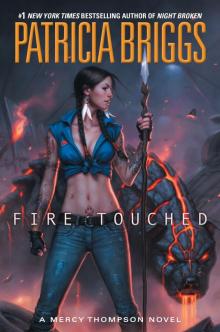 Fire Touched
Fire Touched Dead Heat
Dead Heat Blood Bound
Blood Bound Dragon Bones
Dragon Bones Night Broken
Night Broken The Hobs Bargain
The Hobs Bargain Ravens Shadow
Ravens Shadow Ravens Strike
Ravens Strike Storm Cursed (A Mercy Thompson Novel)
Storm Cursed (A Mercy Thompson Novel) Bone Crossed
Bone Crossed Dragon Blood
Dragon Blood Smoke Bitten: Mercy Thompson: Book 12
Smoke Bitten: Mercy Thompson: Book 12 Smoke Bitten
Smoke Bitten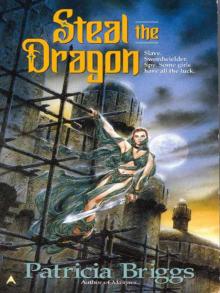 Steal the Dragon
Steal the Dragon 0.5 On The Prowl (alpha and omega)
0.5 On The Prowl (alpha and omega) Alpha and Omega
Alpha and Omega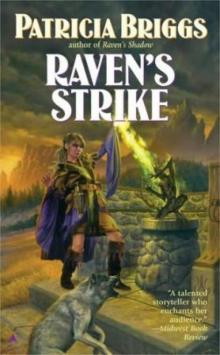 Raven's Strike rd-2
Raven's Strike rd-2![[Mercy 03] - Iron Kissed Read online](http://i1.bookreadfree.com/i/03/24/mercy_03_-_iron_kissed_preview.jpg) [Mercy 03] - Iron Kissed
[Mercy 03] - Iron Kissed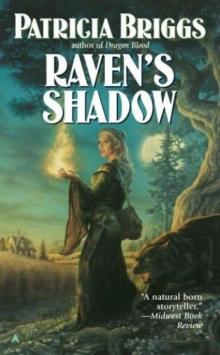 Raven's Shadow rd-1
Raven's Shadow rd-1 Frost Burned mt-7
Frost Burned mt-7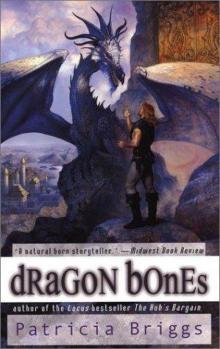 Dragon Bones h-1
Dragon Bones h-1 Shifting Shadows: Stories from the World of Mercy Thompson
Shifting Shadows: Stories from the World of Mercy Thompson Silver Borne mt-5
Silver Borne mt-5 Wolfsbane s-2
Wolfsbane s-2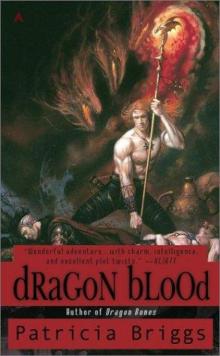 Dragon Blood h-2
Dragon Blood h-2 Iron Kissed mt-3
Iron Kissed mt-3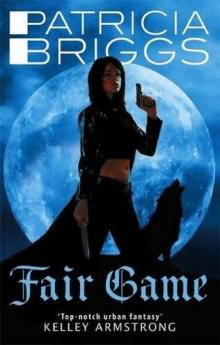 Fair Game aao-3
Fair Game aao-3 Masques s-1
Masques s-1![[Hurog 01] - Dragon Bones Read online](http://i1.bookreadfree.com/i1/04/03/hurog_01_-_dragon_bones_preview.jpg) [Hurog 01] - Dragon Bones
[Hurog 01] - Dragon Bones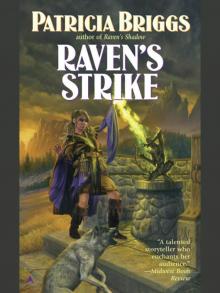 Raven s Strike
Raven s Strike Mercedes Thompson 03: Iron Kissed
Mercedes Thompson 03: Iron Kissed Bone Crossed mt-4
Bone Crossed mt-4 Blood Bound mt-2
Blood Bound mt-2![[Mercy 01] - Moon Called Read online](http://i1.bookreadfree.com/i2/04/09/mercy_01_-_moon_called_preview.jpg) [Mercy 01] - Moon Called
[Mercy 01] - Moon Called River Marked mt-6
River Marked mt-6 The Mercy Thompson Collection
The Mercy Thompson Collection Moon Called mt-1
Moon Called mt-1 Mercy Thompson 8: Night Broken
Mercy Thompson 8: Night Broken